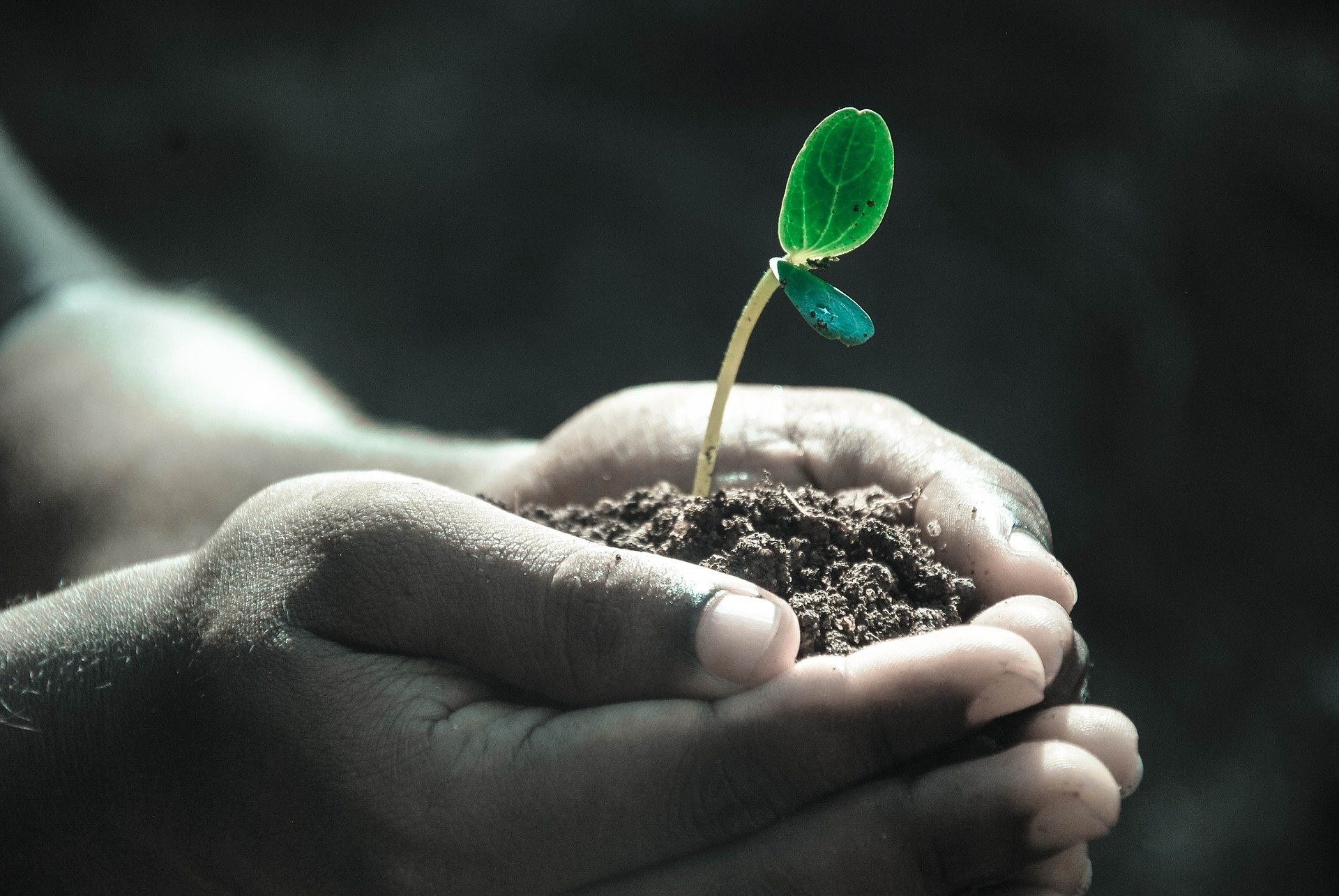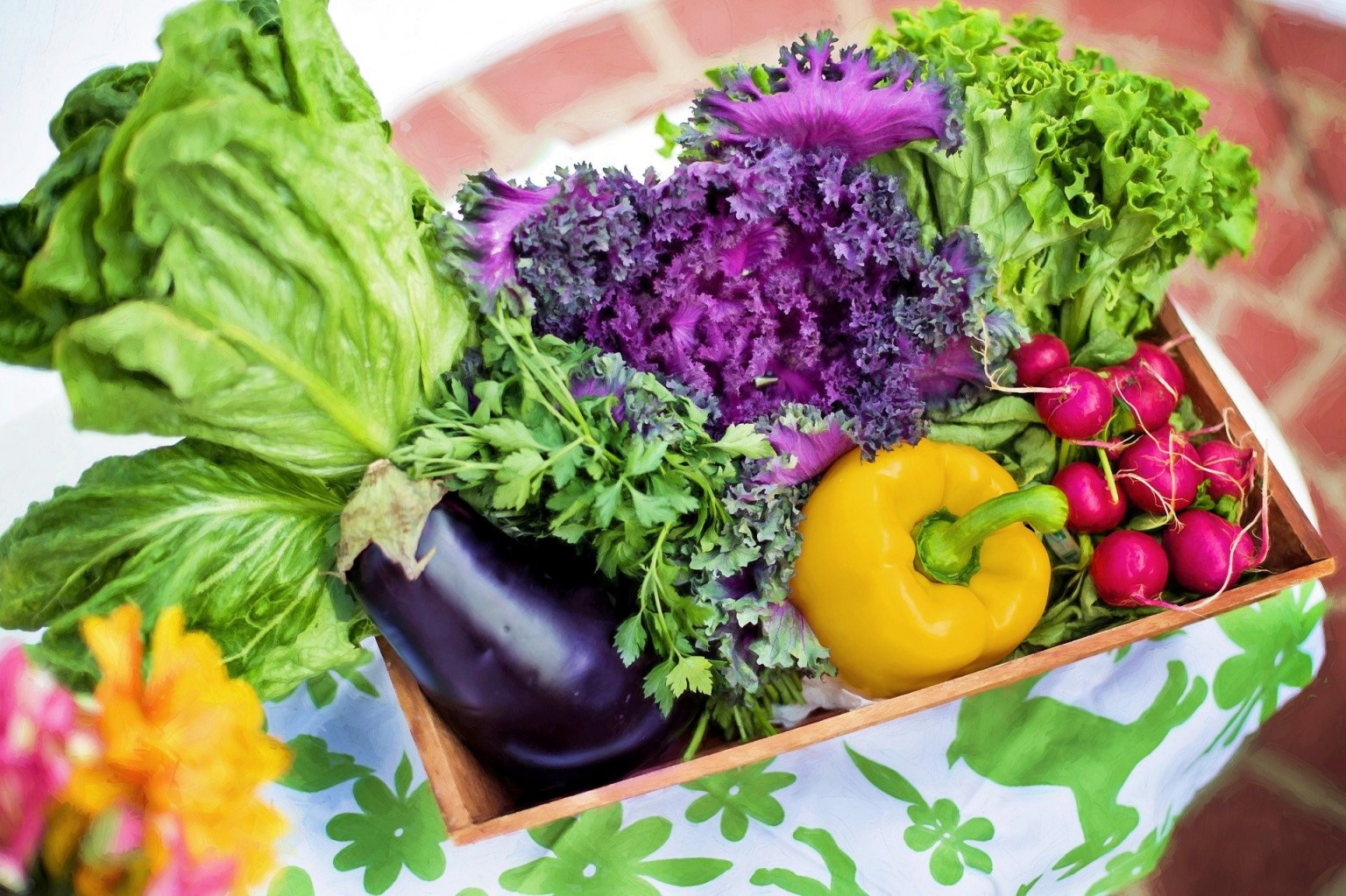10 Things To Consider When Starting a Sustainable Garden
Growing your own in your garden is a great way to make the most of your space. And it can help you to live more sustainably in a wide range of different ways. But when you start to garden, it is important to make sure that your efforts are as sustainable and eco-friendly as possible.
Many people are turning to their gardens this year – and many have decided to turn their hands to growing their own for the first time. So to make sure you set out on the right foot, here are 10 things to consider when starting a sustainable garden:
Grow Organically
If you want to garden in a way that is sustainable, which allows you to meet your own needs without compromising the ability of future generations to meet their own... If you want to grow in a way which is kind to people and planet... Then growing organically is the only way to go.
When you grow organically, that means that you avoid the use of harmful pesticides, herbicides and synthetic fertilizers. But it also means gardening holistically, in a way that works with nature rather than fighting it.
Protect the Soil

One of the most important things in any organic garden is the soil. We depend on the soil to grow the plants we need. Healthy soil leads to healthy plants, leads to healthy food and a healthy body. Everything comes back to good soil health.
Another very important thing to understand as a gardener is that soil is also a very important carbon sink. The ways in which we manage our gardens can have a direct impact on tackling our climate crisis. When you think about sequestering carbon, trees are likely the first thing that spring to mind.
But soil, as well as plants, plays a vital role in the world's carbon cycle. Taking a no-dig gardening approach, disturbing the soil ecosystem as little as possible, and adding plenty of organic matter means you will be fighting climate change as you grow.
Make Compost
One key strategy in maintaining and improving the soil in your garden (and increasing soil carbon levels) involves composting kitchen waste and other compostable materials. Before you even think about sowing any seeds, you should make sure you have a composting system in place.
Composting does not just help you protect the soil and maintain fertility in your garden over time. It can also help you live more sustainably in other ways. Making your own compost at home allows you to reduce food waste.
Catch and Store Water
To be as eco-friendly and sustainable as possible in your garden, you also need to think very carefully about water. Another thing to think about before you even sow any seeds is where water will come from. And how you can catch and store water, and use it wisely, in your garden. Setting up a rainwater harvesting system is a great way to make sure you are making the most of this natural resource.
Water can be stored in soil and plants as well as in containers. By choosing the right plants for you garden, and planting them in the right places, you can store water locally, and prevent water waste. Digging wildlife ponds, drainage ditches and swales can also help you manage water more effectively in a sustainable garden.
Practices such as drip irrigation, mulching, and careful polyculture planting can also reduce the amount of water you use. Which can help you make sure your garden is resilient in the years to come.
Plant For Place
In a sustainable garden, plant choices are key. Whenever you choose any plants for your garden, you need to think about where you live. Think about climate, microclimate, sunshine and shade, wind and water and soil, and always choose the right plants for the right places.
Choosing the right plants for each part of your garden means you will reduce waste, and create resilient systems that can stand the test of time.
Obtain a Yield

A sustainable garden is not just one that looks beautiful. It should also provide a yield. That yield will usually be food. Growing your own food in your garden means you can withdraw your support for damaging agricultural systems, and reduce your carbon footprint.
But you can also, of course, obtain many other yields from a garden that will help you live in a more sustainable and eco-friendly way. A sustainable garden might, for example, provide you with ingredients to use in household cleaning and personal cleaning and beauty products. And making your own natural products will mean that you can avoid buying harmful options, and reduce the amount of plastic packaging you bring into your home.
Boost Plant Biodiversity
One of the major problems facing the world today is massive loss of biodiversity. In a sustainable, organic garden your goal should always be to increase plant diversity as much as possible. The more diversity there is in the plant life in your garden, the more beneficial interactions can arise between the different species, and the more stable and resilient the system will be as a whole.
The more diversity there is, the greater your chances of success too, since you will not have placed all your eggs in one basket.
Welcome Wildlife
Of course, you should try to increase animal diversity too. The more wildlife you can welcome into your garden, the more benefits you will see as a gardener. A wildlife friendly, wildlife rich garden is a balanced place, where while pests are present – no one species should get out of control. Plant and create habitats to bring beneficial wildlife into your garden and you will get just as much from it as the wildlife.
Avoid Peat
Peat has traditionally been used in growing media and soil amending composts because it is excellent for growing plants. But as a sustainable gardener, using a peat-based growing medium should be a no-no. Make your own composts/ potting mixes or buy peat-free options. Peat should be left in peatlands where it belongs, to sequester carbon, play a role in our water cycles, and benefit a range of flora and fauna.
Peat comes from lowland peat bogs. When we use it on a large scale in the horticultural industry, we are damaging these precious wetland environments. The problem is that although peat is a natural resource – we are using it up far faster than it can be replenished. And we need those peat ecosystems to remain for a number of reasons.
Firstly, and importantly, peat bogs are a crucial carbon sink. Peat wetlands are the most important ecosystems for carbon sequestration on our planet. Peat wetlands store more carbon than all other vegetation types, including the world's forests. Peat covers just 3% of the world's land area but stores 1/3 of the Earth's soil carbon. When peat is removed and peat ecosystems are degraded or destroyed, these ecosystems can no longer play their role in maintaining the world's carbon cycle. We need to sequester more carbon and lock it up in peat bogs and other carbon sinks in order to tackle the massive climate crisis we face.
Wetlands are also very important in the water cycle. When we destroy peat bogs, we risk disrupting the flows of water through our environment. This can have a profound effect on our lives. Globally, peatlands filter water. They provide nearly 4% of all potable water stored in reservoirs.
What is more, when peat ecosystems are degraded, water can also pass across a landscape more quickly. When we take peat away, or disrupt natural systems, this can cause major flooding issues for communities at lower elevations.
And it is not just people affected by peat removal. Many species of flora and fauna also rely on precious peat habitats. Wetlands are the most biodiverse of all nature's ecosystems. When we disrupt and disturb them, we are contributing to habitat loss and biodiversity losses.
Reduce Plastic Use
Finally, when starting a sustainable garden, you should take steps to reduce plastic use in your garden as much as possible. Use biodegradable plant pots or soil blockers, and planters made from non-plastic materials. Choose tools with wooden rather than plastic handles. Use natural twines, mesh, netting etc. rather than synthetic options.
These are just a few tips to help you make sure your garden and gardening approaches are as sustainable and eco-friendly as possible.

 United States, EN (USD)
United States, EN (USD) Europe (EUR)
Europe (EUR) Netherlands (EUR)
Netherlands (EUR) France (EUR)
France (EUR) Spain (EUR)
Spain (EUR) United Kingdom (GBP)
United Kingdom (GBP)
